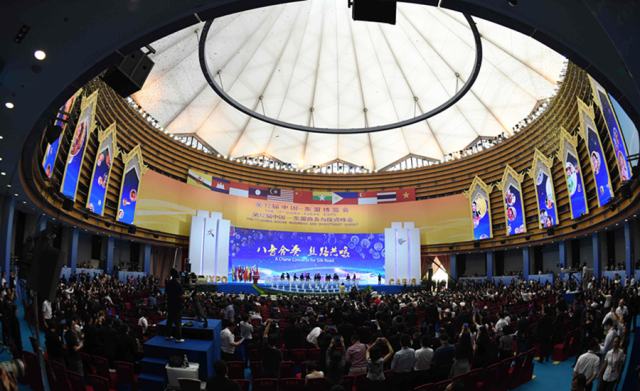Premier's Malaysian trip to seek further economic integration in East Asia
(Xinhua)
2015-11-21
Common goal
Given the fact that the would-be signatories of the RCEP have a total population of approximately 3 billion and constitute one-third of global gross domestic product, it has become a goal that all negotiating parties have been striving for.
China's cooperation with ASEAN, which can be traced back to 1991 when the two sides set up the dialogue, has been serving as a driving force to lead the progress of RCEP negotiations.
Following what has been hailed as the "golden decade" of China-ASEAN relations since the two sides forged a strategic partnership in 2003, Beijing proposed a China-ASEAN community of common destiny in 2013.
In the same year, Premier Li called on the two sides to further create a "diamond decade" of bilateral ties under what he called a "2+7 cooperation framework."
The "2" refers to consensus on deepening strategic mutual trust and focusing on economic development, while the "7" refers to seven areas of cooperation covering politics, trade, inter-connectivity, finance, maritime cooperation, security and people-to-people exchanges.
To Jiang Ruiping, vice president of China Foreign Affairs University, the China-ASEAN FTA, which came into effect on Jan. 1, 2010 and is now nearing the end of a negotiation process to have it upgraded, has led to countries like Japan, South Korea, India and Australia signing their individual FTAs with ASEAN, laying the foundation for the RCEP.
Gao Yan, Vice Minister of the Ministry of Commerce, told a press briefing in Beijing on Tuesday that China has been "a firm supporter and promoter" of the RCEP, hoping that the negotiations maintain their impetus so as to conclude as soon as possible.
According to Gao, the RCEP negotiations have already made substantial progress, and China, together with ASEAN countries, is seeking to finalize the deal in 2016.
Gao said that the RCEP negotiations have already had 10 rounds of talks plus four rounds of ministerial-level meetings, and that an early finalization will significantly boost all parties' confidence.
On Tuesday in Manila, Malaysian Prime Minister Najib Razak told Chinese President Xi Jinping that the RCEP should be agreed on as soon as possible.
Sanchita Basu Das, an economics researcher at the ASEAN Studies Center of Singapore's Institute of South East Asian Studies, in a recent interview with Xinhua, called for intra-ASEAN consensus to safeguard the inking of the RCEP deal.
"If ASEAN members can integrate within themselves, they can take leadership role in RCEP negotiation and hence can maintain its centrality in regional trading architecture," he said.






